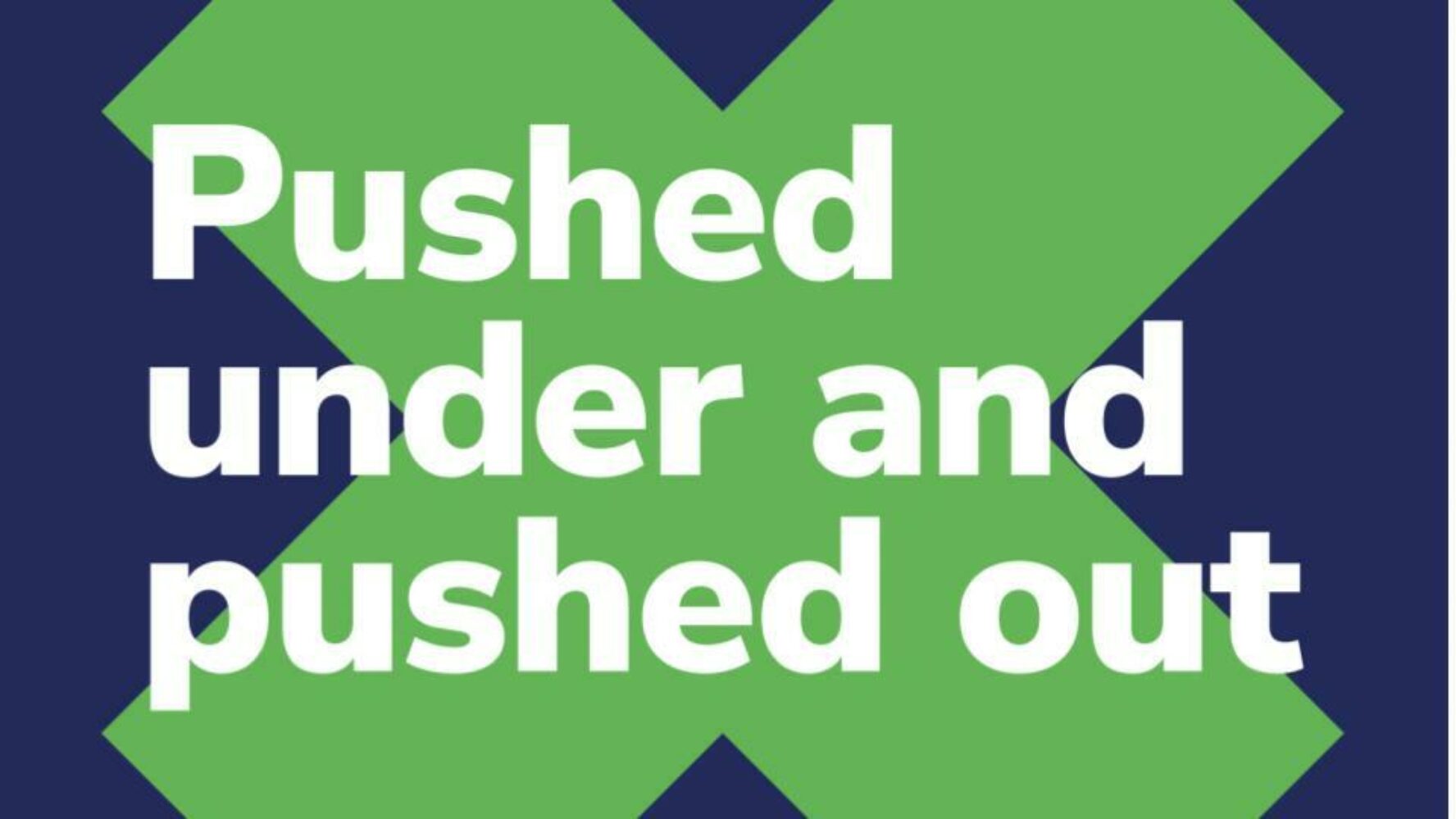
New research is sounding the alarm about the growing number of households on low incomes being pulled into debt, simply to pay for essential living costs. This comes as CAP’s newest YouGov polling reveals that over 15 million people across the UK are struggling, burdened by debt repayments.
Concerned at how debt is driving poverty among its clients, CAP commissioned the Centre for Research in Social Policy to look at how debt impacts people’s living standards across the UK. Using data from more than 35,000 people over a ten year period, the analysis looked at their risk of falling below the income they need to live with dignity, and cover their basic living costs. To do this it used a benchmark established by the Minimum Income Standard (MIS).
The research revealed that:
For those on low incomes, just trying to pay for essentials is driving them into debt: 82% of people with income below the minimum level were in arrears due to essential household bills — representing around one million people across the UK.
Getting behind on essential bills traps people further: for those who get behind with household bills there is almost double the likelihood of them remaining under MIS over successive years.
Those in low income employment are most affected: they see the largest relative drop below the level of income they need (8 percentage points, or around £50 a week for a family with two children), showing that work doesn’t necessarily protect against the impact of low incomes and debt.
Alongside the research, CAP’s newest YouGov polling adds important insights into the financial pressures people face in 2024:
Even more people are using credit for essential costs: over 4.5 million people (4.7m people; 9% of UK adults) have been mainly using credit in the last 6 months to pay for monthly bills.
Going without energy: A huge 42% of UK adults (22.4m people) have limited electricity or gas use in their house once a month, or more often, to cope with the rising cost of living.
Skipping meals: 17% of UK adults (8.9m people) have skipped meals at least as often as once a month as a result of the cost of living crisis, with 9% of UK adults (4.9m people) doing so on at least a weekly basis.
Our new research and polling confirms what we are already seeing on the ground — that the cost of living crisis is far from over. We see first hand how completely helpless many people feel, worn down by trying to live on an income that’s so low they can’t even cover their essential costs. We see how this robs them of their hope and dignity.
Stewart McCulloch, Chief Executive Officer, Christians Against Poverty
CAP is now concerned many people already on low incomes are facing a tipping point into poverty. The Loughborough University research shows that debt repayments of just £30 a week could tip people below the Minimum Income Standard, increasing the risk of more acute deprivation. Alongside this, CAP’s polling shows that borrowing even small amounts isn’t an option for many, with over 8 million UK adults (15%) saying it wouldn’t be easy to borrow even £200 in an emergency — this leaves them no place to turn.
Stewart McCulloch added: “Our frontline teams in local communities across the UK are stepping into homes every single day to offer vital support and provide hope to those in poverty and debt. But often when they first walk into a client’s house they are finding empty cupboards and cold rooms alongside a pile of debt letters for mostly essential bills.
“Around half of our clients don’t have enough income to cover their needs, even after professional debt advice from us. They have reached a tipping point into poverty, and our research is showing millions more are facing this. As a professional debt help charity, and as people committed to seeing a fairer society, we want to set our sights higher than simply accepting that millions can barely get by. We believe that individuals, families and communities all benefit when people have a liveable income which allows them to have a full life that lets them thrive.”
Relatively little research has been done to look at the impact that debt and debt repayments can have on poverty and people’s living standards. Our analysis shows that for households whose financial resources are already stretched, debts can result in income being pushed well below what is needed to live with dignity. This means that they haven’t got what they need to reach the Minimum Income Standard — a publicly determined benchmark, setting out a household’s minimum needs. People are having to make difficult choices about whether to meet everyday costs or keep up with debt repayments, such as arrears on basic utilities.
Dr Juliet Stone, Research Fellow at Loughborough University’s Centre for Research in Social Policy.
CAP is calling for the UK Government, devolved administrations, local authorities, essential services providers and the credit industry to use the research findings, such as the fact that people with household bill arrears are highly likely to be living below the Minimum Income Standard, to help inform their anti-poverty strategies. In particular, the charity is asking them to make debt deduction rates from benefits more affordable so that people are left with enough income to afford the essentials.
The charity is also asking the Government and businesses to help address the issue of billions of pounds of income top-ups and other benefits going unclaimed each year, which could help people struggling on low incomes. CAP would like to see a national commitment by them to integrate tools such as benefits calculators on their websites and make more active efforts to connect people with this vital income.
Research
Research was carried out by the Centre for Research in Social Policy at Loughborough University. The analysis used data from the ONS’s Wealth and Assets Survey (WAS) which provides information on household finances across the UK. Office for National Statistics data, based on information from more than 35,000 individuals in over 17,000 households. People were interviewed every two years from 2010, up to 2020. The analysis also uses the Minimum Income Standard (MIS) as a benchmark throughout. The MIS approach was developed by CRSP and is funded by the Joseph Rowntree Foundation. It is updated each year, and sets out how much income households need to have an acceptable living standard to fully participate in society
YouGov polling:
YouGov polling was conducted 12–15 January 2024. All figures, unless otherwise stated, are from YouGov Plc. Total sample size was 2089 adults. The survey was carried out online. The figures have been weighted and are representative of all UK adults (aged 18+). Population figures have been calculated by CAP using ONS mid-year UK adult population estimates for 2021 of 53,188,204.



